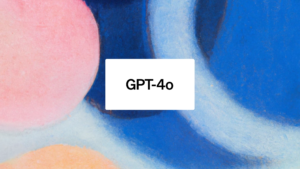This Week’s AI Updates: Highlights from OpenAI and ChatGPT (April 18)

Artificial Intelligence (AI) is constantly evolving, and the news surrounding it is equally relentless. Each week, there’s a surge of new models, innovative products, industry speculations, legal issues, and trending stories. With the ongoing debates about AI’s potential benefits and dangers, it can be challenging to keep track of key developments. This article highlights the most significant AI news from industry leaders like OpenAI and Google, as well as the broader AI landscape.
Currently, the AI leaderboard at LMArena lists Gemini 2.5 Pro at the top, followed closely by ChatGPT 4o and Grok-3 Preview.
OpenAI Updates: New Model Releases
This week, OpenAI made headlines by introducing o3 and o4-mini, the latest versions of its chain-of-thought reasoning models, which leverage all available tools in ChatGPT. Notably, the o3 model exhibits impressive capability in identifying geographical locations from images, an ability that raises privacy concerns after being tested by Mashable.
Earlier in the week, OpenAI also launched GPT-4.1 for its developer API, claiming it outperforms its predecessor, GPT-4o, particularly in coding and instructional tasks. However, OpenAI has announced plans to phase out GPT-4.5 from their API, despite this model being released only a few months ago.
Amidst the introduction of new models, there are concerns about rushed safety testing. Reports from the Financial Times indicate that developers have limited time for evaluations, leading to releases like GPT-4.1 lacking comprehensive safety reviews. Moreover, ChatGPT now features an image library allowing users to store various AI-generated images.
Google’s Response: Gemini 2.5 Launch
In what appears to be a synchronized release schedule, Google has also made strides this week, following OpenAI’s announcements. Google introduced its video generator, Veo 2, to paid Gemini Advanced users, along with the launch of Gemini 2.5 Flash. This newer model offers lightweight reasoning capabilities and is available in their standalone Gemini app.
Google also faced scrutiny regarding the Gemini 2.5 launch for lacking crucial safety evaluation details, as highlighted by TechCrunch. Furthermore, they announced the free availability of the Gemini Live screen sharing and camera vision tool for all Android users of the Gemini app.
Additionally, in an innovative move, Google collaborated with researchers from Georgia Tech and the Wild Dolphin Project to develop a language model named DolphinGemma. This model is designed to interpret dolphin vocalizations to facilitate better communication with these marine creatures.
Nvidia, Anthropic, and Grok Developments
While OpenAI and Google frequently grab headlines, Nvidia made significant announcements this week as well. The company declared plans to manufacture AI supercomputers in Texas and produce Blackwell chips in Arizona. Over the next four years, Nvidia aims to invest $500 billion into AI infrastructure in the United States.
This strategic shift toward U.S. manufacturing appears to be driven by ongoing trade tensions and tariffs, particularly those related to semiconductor production in Taiwan. By building these supercomputers domestically, Nvidia aims to bolster its supply chain resilience amidst economic uncertainties.
In other news, Anthropic unveiled a new integration of its AI assistant Claude with Google Workspace, allowing the assistant to read emails. Meanwhile, Grok has introduced a memory feature and Grok Studio, an innovative interface for managing projects within the application.
Lastly, the benchmarking platform, Chatbot Arena, is moving towards independence as it begins the transition to a real company, committing to remain neutral and accessible for everyone involved in evaluating large language models (LLMs). Stay tuned for further updates as the AI landscape continues to evolve rapidly.





